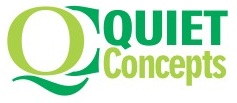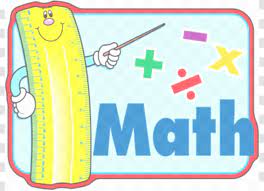COMPARATIVE ANALYSIS OF MOTHER TONGUE ON PUPILS’ ACADEMIC PERFORMANCE IN MATHEMATICS ELEMENTARY SCHOOLS
₦10,000.00 ₦3,000.00
Raheem (2018) notes that education must be considered as a key investment in modern economies because, as previously seen within the framework of a knowledge-based economy, there are strong and positive correlation between economic activity and education in explaining economic growth. He noted that parents should make sure they put all positive machinery that will assist the academic performance of their children so that they can secure a better future for them economically
Description
CHAPTER ONE
INTRODUCTION
1.1 Background to the Study
Education is a process by which the mind of human being develops through learning at homes, streets, religious institutions like churches and mosques, schools, colleges or universities (Abiodun and Ojo, 2018). It is also a process whereby a person develops attitudes and abilities that are considered to have value and relevance in the society. It is the best legacy a nation can give to her citizens especially the youth. Every nation hoping to have bright future needs to emphasis education because it is the only way to much development (Abiodun and Ojo, 2018).
The term mother tongue is variously interpreted. Some take it to mean the child’s first language. According to Nwali (2014), mother tongue is the local form of language. Hornby (2010) also defines mother tongue as the language you first learn to speak when you are a child. He goes further to add that it is the form of language that is spoken in one area with grammar, words and pronunciation that may be different from other forms. Mother tongue is synonymously used with other terms like dialect and language of the immediate community. With the opinion of Nwali and Hornby, it is observed mother has a lot to do with the cognitive exposure of every child to things surrounding him. Based on this, the researcher intends to carry out a study on the comparative analysis of mother tongue on pupils’ academic performance in mathematics in elementary schools in Nigeria.
Raheem (2018) notes that education must be considered as a key investment in modern economies because, as previously seen within the framework of a knowledge-based economy, there are strong and positive correlation between economic activity and education in explaining economic growth. He noted that parents should make sure they put all positive machinery that will assist the academic performance of their children so that they can secure a better future for them economically. Sunday and Kola (2014) therefore assert that it is essential for schools to play pivotal roles in order to ensure that students succeed in their academic performance.
However, in recent time, Nigerian schools are finding it increasingly difficult to ensure the better academic performance of students. Kayode and Ayodele (2015) affirmed that the quality-of education could be adjudged by secondary school students’ academic performance in the National School Leaving Certificate Examinations. Meanwhile, academic performance in elementary and primary school will determine the academic performance of students in secondary and tertiary institution. Aremu & Sokan (2002) opine that academic achievement of students especially at the elementary school level is not only a pointer to the effectiveness or otherwise of schools but a major determinant of the future of youths in particular and the nation in general. Adeyemo (2001) also adds that learning outcomes from elementary schools have become a phenomenon of interest to all and this account for the reason why scholars have been working hard to untangle factors that militate against good academic performance of pupils at elementary level. This phenomenon has been variedly referred in literature as academic achievement, or scholastic functioning. Adeyemo (2001) further affirms that academic achievement of learners has attracted attention of scholars, parents, policymakers and planners. Osiki (2001) also opine that the major goal of elementary schools is to work towards attainment of academic excellence of pupils. According to him, the school may have other peripheral objectives but emphasis is always placed on the achievement of sound scholarship. Besides, virtually everybody concerned with education places premium on academic achievement; excellent academic achievement of children is often the expectation of parents.
This challenge has bought about different policies in educational set-up across Nigeria. For instance, in late 2017, the governor Nasir El-rufai, the governor of Kaduna State sacked nothing less than 22,000 teachers which was almost 50% of the population of teachers in the State due to poor performance of the students in the State. Also, in August 1 2017, the Commissioner for Education, Science and Technology in Oyo state, Professor Adeniyi Olowofela, said that the state government was carrying out a surgical operation on the education sector in the state. This is due to the poor academic performance of pupils in their elementary schools.
The academic performance of every child is wired with the state of the cognitive condition that the child his. The reason for this is that cognitive skill is the processor that processes the learning bits that child learns in the class. Raheem (2015) states that there are three basic skills needed by every student to process and exercise the knowledge gained. These skills are receptive skills, cognitive skill and productive skills. Receptive skills are skills that students used to receive information, these are reading and listening. Cognitive skill is the skill used by the students to process the information received, this is the reasoning faculty of the students. Productive skills are skills that the students use to express what they have learnt through receptive skills and their cognitive skill has processed.
Mathematics is one of the subjects that require a critical cognitive process as it contains logic. Grade-Power (2018) states that mathematics challenges are not always a result of a learning difficulty. For many students who struggle with mathematics, it is simply because they don’t have the proper foundation needed for the subject. These students may have fallen behind in a unit or moved on to advanced material before they were ready, leading to falling grades. Also, Mathematics is a very abstract subject. For students, learning usually happens best when they can relate it to real life. As mathematics becomes more advanced and challenging, that can be difficult to do. As a result, many students find themselves needing to work harder and practice longer to understand more abstract mathematic concepts.
On this, it is essential to look into means in which academic performance of children elementary pupils will be catered for. Some of the educationists believe that the use of mother tongue will have a positive impact in the life of students. This is because human being naturally understands his mother tongue than the second language which he acquires. But there are some scholars who believe that the use of mother tongue will step down the understanding of the students in classroom. For instance, Faizu (2014) believes that mother tongue language disrupts the smoothness of communication in the classroom setup. Rather, English language as a medium of communication in the classroom will let students understand the mind of the writer better once the language used to decode the note contents is English language. Also, language background affects the performance of students in the classroom. On this, the researcher intends to look into the comparative analysis of mother tongue on pupils’ academic performance in mathematics in elementary schools in Nigeria.
1.2 Statement of the Problem
The use of mother tongue in teaching elementary school children in Nigeria has become a general phenomenon. However, many school authorities still forbid the use of mother language for teaching learning process in their schools. Meanwhile, some schools believe that once the use of mother language can aid the academic performance of their pupils, it is acceptable. Chisunum and Ezie (2014) explain that the use of mother tongue in the teaching and learning process has been an issue of debate among educators. In other view, most teachers feel that the use of First Language (L1) should be minimized and they feel guilty if they use it a great deal. When challenged they find it difficult to say why. Against the use of L1 is the general assumption that teaching-learning process should be carried out through English, just as mother tongue is learnt using mother tongue.
What bothers the mind of the researcher is that the use of mother tongue have positive impact on the academic performance in mathematics or it marred it? As a result, the researcher comes up with the topic, teachers’ perception and analysis of mother tongue on pupils’ academic performance in Mathematics in elementary schools in Nigeria.
1.3 Purpose of the Study
This study intends to look into the teachers’ perception and analysis of mother tongue on pupils’ academic performance in Mathematics in elementary schools in Oyo Nigeria. It also aims at examining the importance of mother tongue to the academic achievement of elementary school children.
1.4 Research Questions
- Of what importance is the use of mother tongue to the academic performance of elementary school children in mathematics?
- What is the significant relationship between the use of mother tongue and academic performance of elementary school children in mathematics?
- To what extent does the use of mother tongue assist the academic performance of elementary school children in mathematics?
1.5 Significance of the Study
This study will be of help to many people in the society especially teachers teaching elementary school children as it will be of benefits to educational planners and educational managers. This is because they will be able to incorporate the needs and nature of elementary school children to the planning of education. The study is also of significance to specialists taking care of the educational curriculum of elementary school children in Nigeria as this will call them to the attention of considering elementary school children while deciding the language of communication during teaching learning process.
In addendum, the study will be of immense benefits to teachers teaching elementary pupils mathematics as they will be able to decide either the use of mother tongue will aid the education of elementary school children or not. Without doubt, this study will really be of great benefit to Ministry of Education, Commissioner for education and government at large by aiding them either to give preference to the use of mother tongue in teaching elementary school children…..







Reviews
There are no reviews yet.